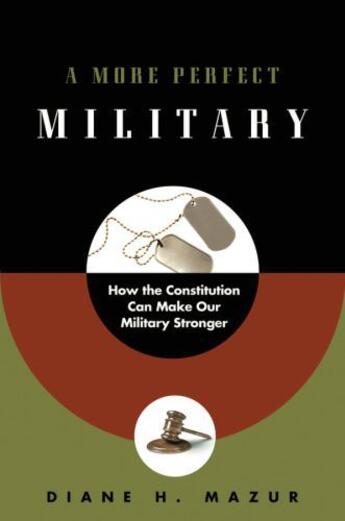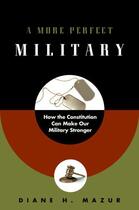-
Nombre de pages : (-)
-
Collection :
(-)
-
Genre :
(-)
-
Thème :
Non attribué
-
Prix littéraire(s) :
(-)
Résumé:
Surveys show that the all-volunteer military is our most respected and trusted institution, but over the last thirty-five years it has grown estranged from civilian society. Without a draft, imperfect as it was, the military is no longer as representative of civilian society. Fewer people accept... Voir plus
Surveys show that the all-volunteer military is our most respected and trusted institution, but over the last thirty-five years it has grown estranged from civilian society. Without a draft, imperfect as it was, the military is no longer as representative of civilian society. Fewer people accept the obligation for military service, and a larger number lack the knowledge to be engaged participants in civilian control of the military.
The end of the draft, however, is not the most important reason we have a significant civil-military gap today. A More Perfect Military explains how the Supreme Court used the cultural division of the Vietnam era to change the nature of our civil-military relations. The Supreme Court describes itself as a strong supporter of the military and its distinctive culture, but in the all-volunteer era, its decisions have consistently undermined the military's traditional relationship to law and the Constitution. Most people would never suspect there was anything wrong, but our civil-military relations are now as constitutionally fragile as they have ever been.
A More Perfect Military is a bracingly candid assessment of the military's constitutional health. It crosses ideological and political boundaries and is challenging-even unsettling-to both liberal and conservative views. It is written for those who believe the military may be slipping away from our common national experience. This book is the blueprint for a new national conversation about military service.
Donner votre avis















